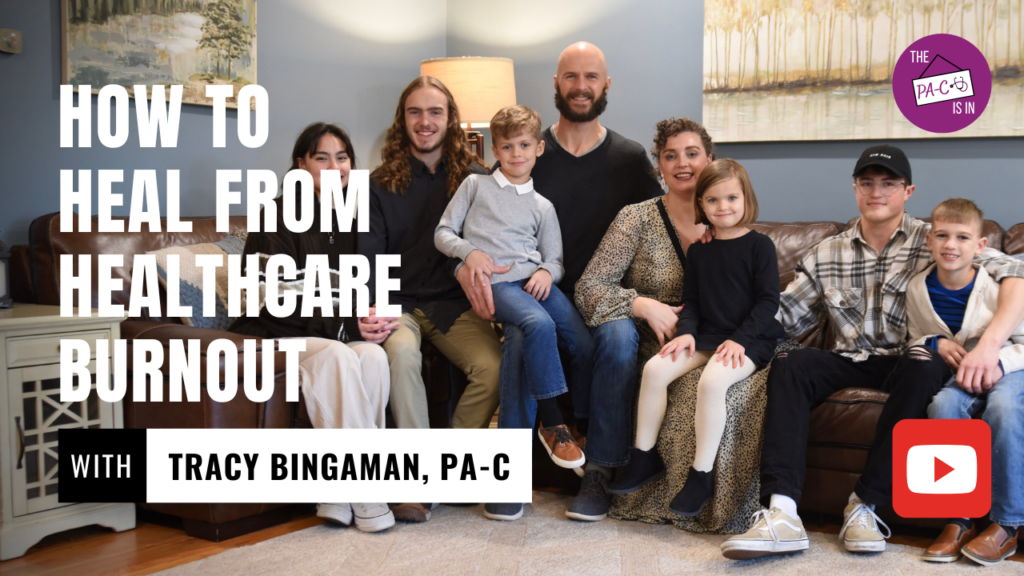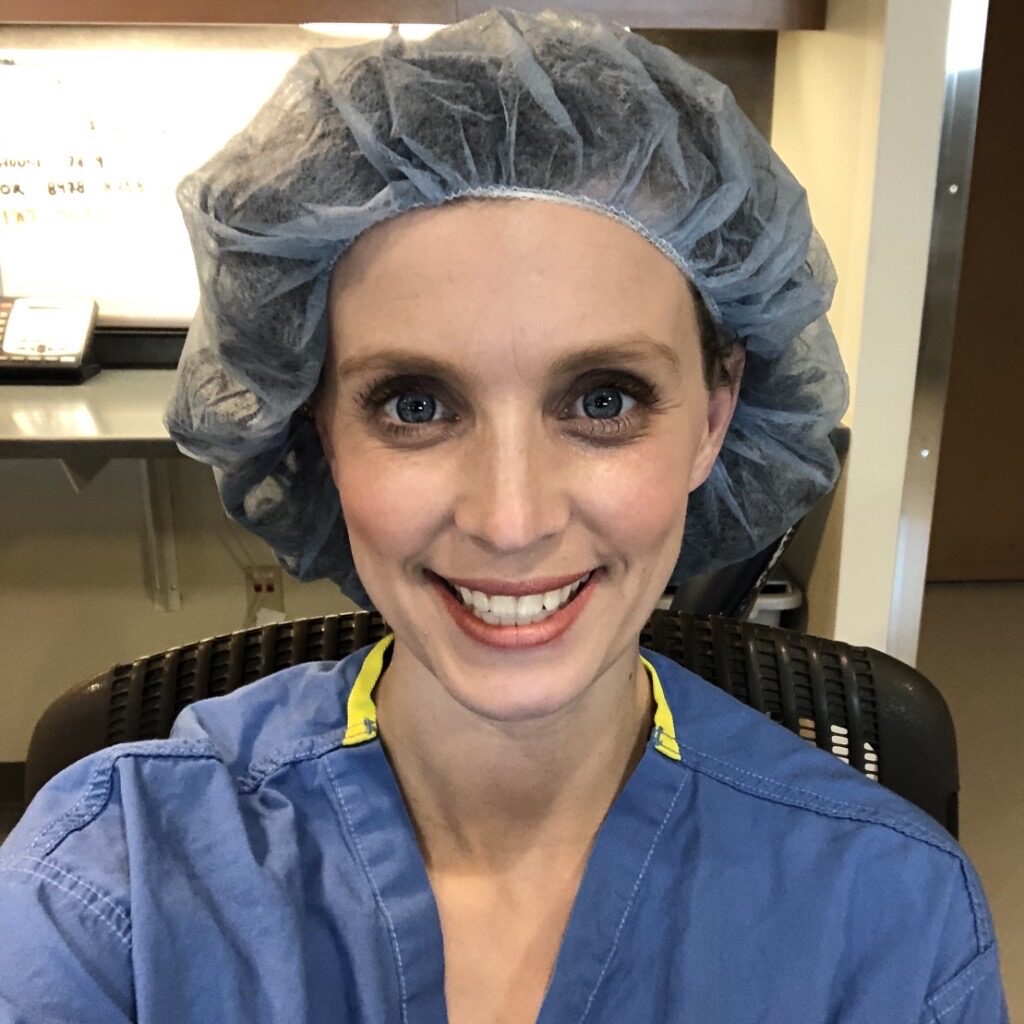Early Career PA
After graduation I started my career as a physician assistant (now physician associate, see this article if you missed the professional title change for PAs) in general surgery. Originally at a small community hospital in surgery, I moved to a larger university health network working in general surgery at a one-surgeon, one-PA practice.
Several years later, I was ready to move on from general surgery and spread my wings in a surgical subspecialty. I landed a job working in robotic urology at the same health network. Excited to work in a specialty, learn the davinci robot and take care of complex urologic malignancies.
If you’re curious to hear more about how networking and strategic planning played into my career and how I negotiated these career moves, this episode is for you.
Watch on YouTube

Burnout
It was in that position in urology that I burned out. When I started, the hours were reasonable. The demands of my job were such that I was able to meet them inside of my work hours.
Over time, things changed. Our service demands increased. The health network grew. Each time the network expanded, acquired, purchased or built another hospital it was one more site to round at.
Our health network nearly doubled in size, onboarding new hospital after new hospital. With that growth in the size of the network, the demands on our inpatient team grew as well.
Inside of our network we had two inpatient providers covering the urology service: myself and my nurse practitioner colleague. Before you freak out about the PA vs. NP debate, check this post out.
We had the network divided into east and west sides. She covered half and I covered the other half. When I started, my half was 2 hospitals, only 1 of which I rounded at regularly.
When I left that job, my half of the network was 6 hospitals, 2-3 where I rounded almost daily. The workload grew. Our human resources stayed the same.

Rock Bottom in Burnout
One night, after work 12-hours during the day in the operating room, I slid directly into my 16-hour overnight call shift. I was up throughout the night with 2-3 hours of interrupted sleep.
After returning home from the ER, more pages came in. I had a patient with Fournier’s gangrene that needed urgent transfer and a rule out testicular torsion at another hospital. On the phone with one hand and balancing my laptop on my knees with the other, I was utterly exhausted.
One thing you may not know about me is that when I’m tired, I cannot control my emotions. I’m overly dramatic and overly sensitive. When I cry on the phone with my mother her first question is “are you getting enough sleep?”
So, here I am, working still at 5:30am after being up all night, in and out of the ER, completely exhausted and utterly depleted. My daughter, who was 2 years old at the time, had just woken up.
She came toddling around the corner and she was so warm and snuggly in her purple owl footy pajamas. Wiping the sleep from her eyes she said “Mama, up!” wanting me to scoop her up, give her a hug, and snuggle her as she was waking up.
But my lap was occupied. My laptop was in her spot. And I was stressed to the max. So I said no. I was on the phone with the transfer center. I had to go back to the hospital to work another 10-12 hours.
So, I said no. I told my 2 year old daughter Rae that I couldn’t hold her. And, because she was 2 and didn’t have much of a filter, because she loves getting her way and because she has 4 older brothers who have taught her a few choice words… she said three words that would change my life forever. She said “Mama, you’re stupid.”
Oh shit. She was right. I was being stupid. I was living a life I didn’t want. Burned out beyond belief. I couldn’t keep going the way I had been going. There was no way that I could mentally, physically and emotionally sustain the pace, the hours, and continue to meet the demands of the job I was working.
So, I quit. I resigned one week to the day after my daughter called me stupid.
My Health
Before Rae called me stupid, I was dealing with multiple medical maladies. I was dealing with pneumonia and recurrent upper respiratory illnesses. My heart rate at rest was between 110-180 beats per minute at rest. Diagnosed with autoimmune hyperthyroidism, I was forced to realize that burnout was majorly affecting me physically.
My body had been whispering “please, slow down.” Then, eventually my body started saying “please, Tracy, I cannot keep going like this.” Finally, my body started screaming “STOP! This isn’t sustainable. I’m not safe. I can’t heal. I cannot keep doing this!”
If I could go back and tell my pre-burnout self anything it would be to tune in to what my body was telling me sooner.
I was struggling with insomnia, sleeping 2-3 hours a night, and I kept going. I couldn’t breath because I was so tachycardic, and I kept going. Not someone who wants to fail, I saw burning out and quitting my job as a failure.
I had never had a professional failure in the past. Physically my job had not negatively affected me in the past.
Your health is limited. Your body is telling you things. If you take the time to tune in to your body, listen to the cues it’s sharing with you.
Recovering from Burnout
Recovering from burnout is, in fact, a journey. I’m not recovered but I do think that I am recovering. I’m working hard to heal.
I’m working to become a whole, well, healed human being. Leaning into understanding what matters most to me, what works for me, and what I need to be true in order to be able to thrive in this life.
The opposite of burnout is thriving. In order to thrive, you need to lean into your core values and figure out what works for you in this life.
I’d be honored to walk through your burnout recovery journey with you. Book a call with me for a free consultation to see how I can serve you on this quest.